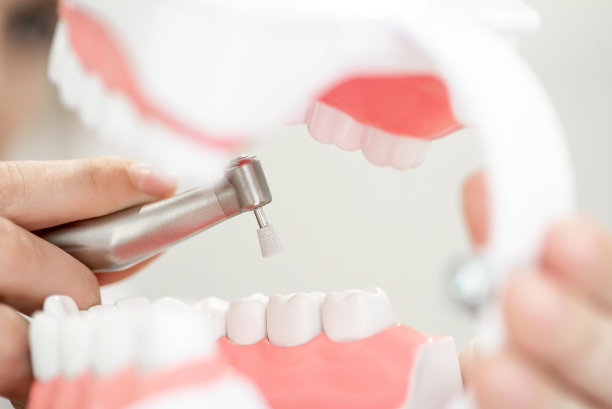Summary: Dental implant treatment has become a pivotal aspect of modern dentistry, offering a robust solution for restoring oral health and functionality. This article outlines the benefits and processes associated with dental implants, emphasizing their ability to enhance the quality of life for patients. It covers the medical advantages of implants, the surgical process involved, the aftercare required for optimal healing, and the long-term impacts on oral health. Through understanding these facets, patients can appreciate not only the significance of dental implants but also how they contribute to lasting restoration and improvement in overall well-being.
1. Medical Benefits of Dental Implants

The most notable advantage of dental implants is their ability to closely mimic natural teeth. Unlike dentures, which may shift and cause discomfort, implants are securely anchored into the jawbone, providing stability and comfort. This characteristic allows patients to enjoy their favorite foods without fear of loosening or slipping, significantly enhancing their quality of life.
Another key benefit of dental implants is their ability to maintain jawbone health. When a tooth is lost, the underlying bone can begin to deteriorate due to a lack of stimulation. Implants stimulate the bone just like natural tooth roots, preventing bone loss and preserving the facial structure. This not only impacts aesthetics but also maintains oral functionality.
Moreover, dental implants are known for their longevity. With proper care, they can last a lifetime, making them a worthwhile investment compared to other tooth replacement options that may need regular replacements or adjustments. This durability adds to their appeal for anyone considering long-term solutions to tooth loss.
2. The Surgical Process Explained
The journey to obtaining dental implants starts with an initial consultation, where a thorough examination is conducted. This includes imaging tests, such as X-rays or CT scans, to evaluate bone density and structure, which are crucial for a successful implant placement. Understanding the patients medical history is also vital to anticipating any potential complications.
The actual implant procedure typically occurs in stages. The first stage involves surgically placing the titanium post into the jawbone. This post acts as an artificial root and takes several months to integrate with the bone in a process known as osseointegration. It is crucial for the long-term stability of the implant.
3. Aftercare for Optimal Healing
After the dental implant surgery, proper care is paramount to achieving successful results. Patients are typically advised to follow a soft-food diet for the initial days post-surgery, allowing the area to heal effectively without undue stress. Maintaining good oral hygiene practices, including gentle brushing and using an antimicrobial mouthwash, is essential during the healing phase.
Regular follow-up appointments are crucial for monitoring the healing process. These visits allow the dentist to assess how well the mouth is responding to the implants and to identify any issues early on. Patients should communicate any concerns they might have during this recovery time.
Additionally, avoiding harmful habits such as smoking during the healing period can greatly enhance the success of the implant integration. Lifestyle modifications promoting overall health will facilitate recovery and ensure the longevity of the dental implants.
4. Long-Term Impact on Oral Health
Investing in dental implants not only addresses immediate dental needs but also contributes to long-term oral health. One significant impact is the prevention of further tooth loss, as implants can help maintain the position of adjacent teeth. This stabilization prevents the migration of neighboring teeth that can cause misalignment.
Furthermore, dental implants significantly improve patients’ self-esteem and confidence, as they restore both functionality and aesthetics to their smiles. Individuals with dental implants often report higher satisfaction with their overall appearance, which can enhance their social interactions and professional life.
Lastly, dental implants are relatively low-maintenance compared to dentures and bridges; they require the same oral hygiene practices as natural teeth. This simplicity contributes to an easy and effective long-term oral health regimen, allowing patients to focus more on enjoying life without the constant worry of dental issues.
Summary: In conclusion, dental implants represent a comprehensive solution for restoring oral health, providing numerous medical benefits, a well-structured surgical process, effective healing strategies, and lasting positive impacts on oral well-being. Understanding their advantages paves the way for informed decisions regarding dental health, ensuring patients enjoy a vibrant quality of life. The process may seem daunting, but with the right care and support, it leads to profound benefits that resonate well beyond the dental chair.
This article is compiled by Vickong Dental and the content is for reference only.
Vickong Dental
Vickong Dental is a large medical group established in Hong Kong in 2008 by professors from well-known medical universities in Guangdong and Hong Kong, as well as medical doctors from key national '985' universities (including Master's supervisors and senior professors). The chain of branches brings together expert dentists with PhDs and Master's degrees from Hong Kong and Mainland China, committed to providing high-quality dental treatment.
"Vickong Dental Practices the University Motto of 'Healing and Serving Society,' with a Stable Operation for Sixteen Years. It Has Been honored with Hong Kong Enterprise Leaders's Choice,' and is a Global Trusted Implant Center for the Nobel Implant System. Recommended by Hong Kong Metro Broadcast and Guangdong Television, it Serves Customers from Over Thirty Countries and Regions, Gaining the Trust and Favor of Citizens from the Guangdong-Hong Kong-Macau Greater Bay Area and Surrounding Cities.

Thousands of customers' unanimous praise
The most recognized and highly recommended dental service by customers in the Guangdong-Hong Kong-Macau Greater Bay Area
We Ensure You Receive Detailed Care and Attention Here
Hong Kong standards, Shenzhen prices, Your Trusted English-speaking dentists

Vickong Dental Medical-Grade Instrument Disinfection Process
Vickong Dental Medical-Grade Instrument Disinfection Process

Vickong Dental Chain: A Warm and Comfortable Environment for Treatment






Appointment Hours

Q&A
Why choose Vickong Dental?
Vickong Dental practices the university motto 「Medicine to Benefit Society」, with each branch bringing together highly qualified dentists with doctoral and master’s degrees from Hong Kong and the Mainland, and has maintained seventeen years of steady operation。Recipient of 「2024 Hong Kong Enterprise Leaders Brand」, 「2025 Hong Kong Enterprise Leaders Brand」, a Nobel Biocare Global Trusted Implant Center, and a brand recommended by Metro Radio Hong Kong and Guangdong TV。
To date, we have served customers from more than thirty countries and regions,earning exceptionally high word-of-mouth recognition and trusted recommendations from residents across the Guangdong-Hong Kong-Macao Greater Bay Area and surrounding cities
We have eight major branches in Zhuhai、Shenzhen,and a consultation and service assurance center in Hong Kong,so you can book a free consultation at any time for any questions,which is very reassuring.
If I do not accept the quotation after the CT scan, will I be charged??
No! As long as the actual treatment has not started, you will not be charged any fees.
Will there be any additional charges during the treatment process?
No, there won’t be any additional charges. Before treatment begins, we will clearly explain the treatment plan and its corresponding fees. Only after the patient agrees and signs the consent form will we proceed with the dental service.
Can I pay in Hong Kong dollars?
Yes. Vickong Dental accepts payment in Hong Kong dollars. The amount will be converted based on the exchange rate of the day, and the applicable rate will be clearly communicated to you in advance.
Can I reschedule my appointment at any time?
Yes. Please contact us via **WeChat** or **WhatsApp** as early as possible, providing your original appointment time and details, along with your preferred new date and time slot for rescheduling.













